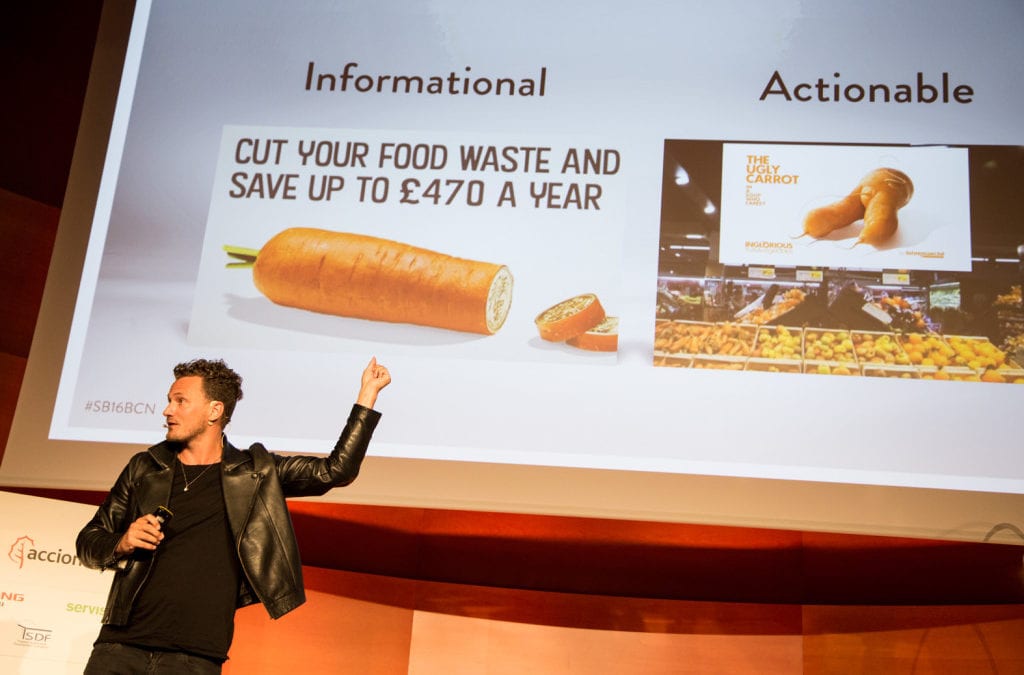Originally featured in IESE Business School
“Everybody’s talking about sustainability, but no one’s really doing it,” says Thomas Kolster, founder of Goodvertising and world expert in sustainability marketing and advertising.
Addressing an audience of sustainability thought leaders and experts at the second edition of Sustainable Brands Barcelona 2016, Kolster urged companies to “walk the walk” in terms of their sustainability efforts – and to bolster their strategies with meaningful objectives.
Part of this, he said, was understanding that most preconceptions about customers were wrong.
Debunking Sustainability Myths
Many organizations still cleave to certain ideas about sustainability and their customer base, said Kolster. Taking the view that customers don’t care, or that they aren’t willing to pay for “green stuff,” or indeed that sustainable brands are “simply unimportant,” he said, is not accurate.
Pointing to the example of Unilever, he stressed that sustainability – done right – can yield concrete financial results.
“There’s money in sustainability, if you are really doing it. The key is authenticity. And understanding that in terms of communication, brands today are not built by what you tell people about you. They’re built by what people tell each other about you.”
Customers are wary of greenwashing, said Kolster. In today’s hyper-connected, hyper-transparent environment, the key to engaging with your client base is authenticity and simplicity in story-telling.
“Keep your brand’s story simple, be authentic and talk about something people really care about,” said Kolster. “Get it right and people will pay for that green stuff.”
Getting it right, he said, implies a switch from the problem to the solution mindset. And that also means “getting creative.”
“We should be asking ourselves for every dollar spent, what is the impact? What difference is my company making? And if we want to be part of the solution, what can we do?” Sustainability is after all, he said, about doing good for the people and the planet.
One company doing just that is the anti-Mafia tourism organization, Addiopizzo Travel.
The Addiopizzo Travel Case
Antonino Vaccaro, IESE Professor of Business Ethics, hosted a plenary session during which he presented the Addiopizzo Travel Case, to showcase how social issues can be resolved through a market-based solution.
The grassroots, Sicily-based social enterprise has three objectives, said Vaccaro: to boost the anti-mafia movement, create employment and gain international exposure and support by leveraging the power of consumers.
Since its inception in 2009, the organization has grown to more than 1,000 shopkeepers, 200 tour services and 32 producers of Sicilian products.
Tourists are buying into this re-write of Sicily’s story, said Vaccaro.
“The Addiopizzo client base has grown by more than 5,000 in six years. And from the initial investment of just €5,000 sales have grown to more than €403,000 in the same space of time.”
Vaccaro echoed Kolster’s remarks about growth based on authenticity.
“What we see here is the value of authenticity. When it comes down to it, people won’t buy in unless your initiative is truly authentic, with an important social issue – in this case, justice – embedded. At the core of this authenticity is the desire to make the world a better place.”
See the rest of the article here.

